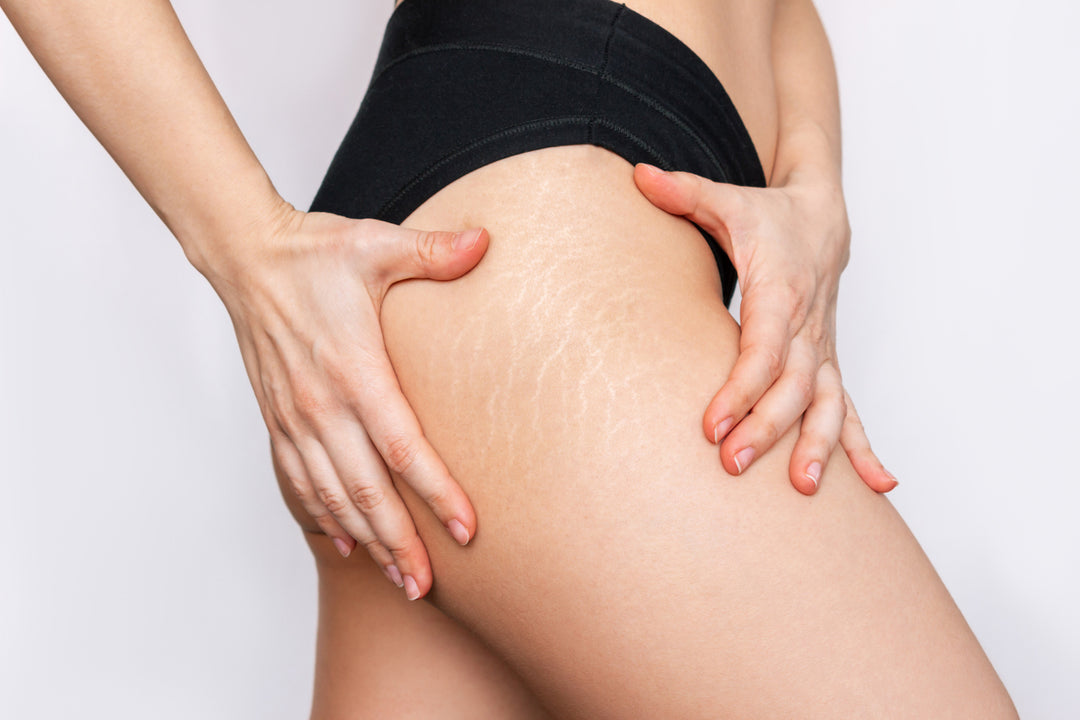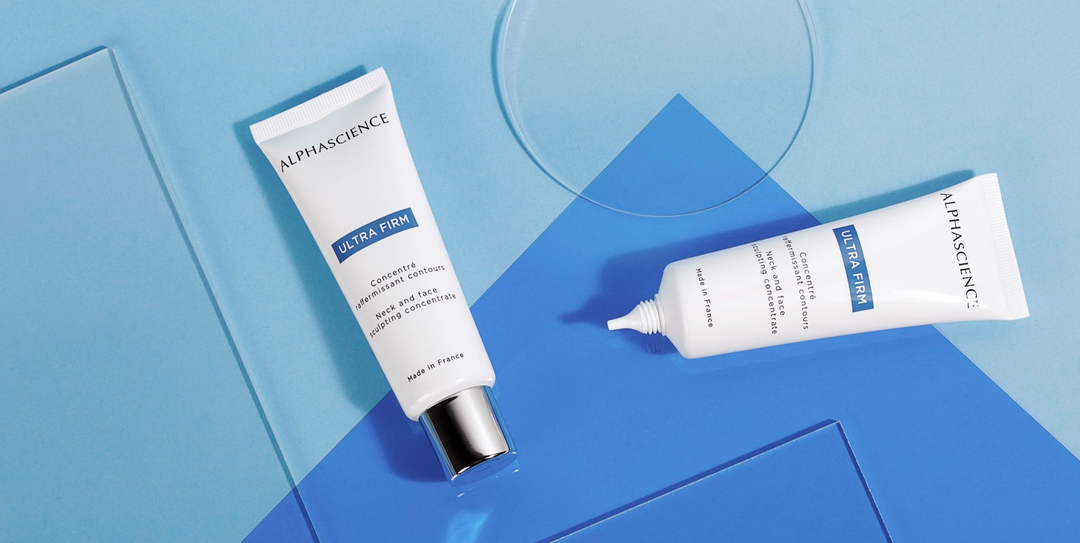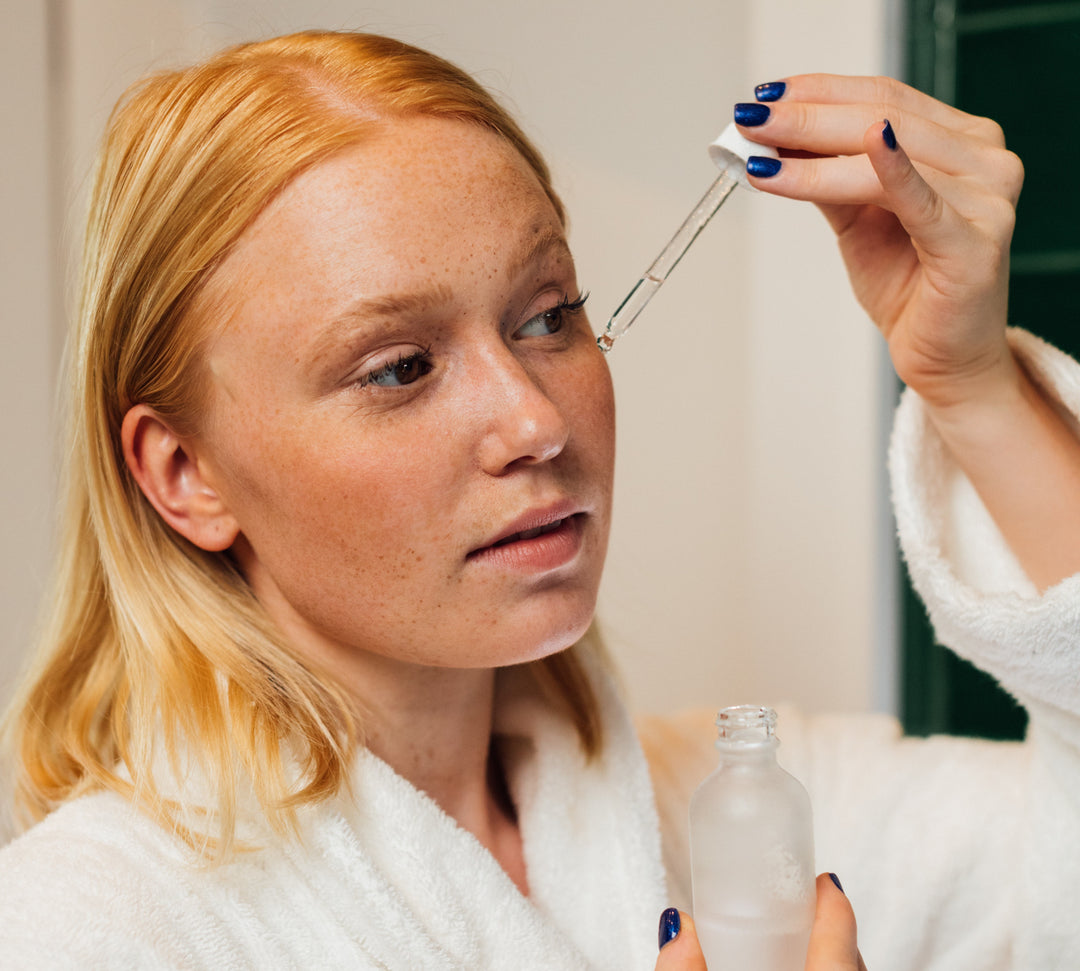4 Reasons Why Your Skin Needs Antioxidants
With the plethora of must-have skincare ingredients out there, antioxidants are one of them! These substances possess more power than you think, as not only do they protect your skin from harmful environmental damage, but also promote a smoother and softer complexion.
What are antioxidants and how do they work?
Antioxidants are compounds that play a major role in protecting your skin from free radicals which are unstable molecules that generate oxidative stress. In turn, this can lead to harmful damage to your cells, encouraging inflammation and premature ageing. Now, this is where antioxidants come to the rescue by counteracting free radicals and repairing the damaged cells, preventing any further damage from occurring. Although free radicals are produced within our bodies, they can also be found in environmental and lifestyle factors such as pollution, cigarette smoke and UV radiation, which can therefore heighten its effects. These are almost impossible to avoid when out and about, hence why antioxidant protection is so vital for your skin.
Antioxidants such as Alpha Lipoic Acid and Glutathione are produced by our body cells but is not enough to fight off free radicals. Other ways it can be acquired is through a healthy diet by consuming lots of fruit and vegetables, as well as using topical antioxidant treatments. By directly applying it onto the skin, it allows for deeper penetration and more visible results of its benefits, which leads us to the next big question…
What skin benefits do antioxidants offer?
- Anti-ageing
Oxidative stress caused by free radicals leads to the breakdown of collagen, a skin-strengthening protein that keeps your skin firm and plump. Hence, when its production is hindered the ageing process is accelerated, leading to the formation of fine lines, wrinkles, and sagginess. Antioxidants target these skin concerns and help reduce and prevent them from reappearing.
- Prevents sun damage
The anti-inflammatory properties of antioxidants help reduce the effects of UV rays on the skin, providing protection against sun damage and photoaging.
- Boosts skin renewal process
When the skin becomes inflamed, it disrupts the skin’s natural repair process. Antioxidants assist in getting this process up and running again through reducing inflammation, allowing for any damaged to be amended.
- Brightens the skin
One of the effects of free radical exposure, particularly from the sun, is that it can alter how much melanin is produced in the skin, resulting in hyperpigmentation and an overall uneven skin complexion. With its healing properties, antioxidants reduce sun damage, therefore corrects pigmentation and balances and brightens the skin.
Which antioxidants are best for your skin?
There are various antioxidant ingredients that you can use for your skin, with the most effective ones being:
- Vitamin C
Best known for its skin-brightening attributes, Vitamin C (L-ascorbic Acid) offers several benefits to the skin. It helps diminish signs of ageing, such as fine lines and wrinkles, by boosting collagen growth, leaving you with firmer and smoother skin. Additionally, by slowing down melanin production, it effectively reduces hyperpigmentation and rebalances the complexion, restoring your skin with radiance. And the greatest thing about it is that it’s suitable for all skin types!
- Vitamin E
This deeply moisturizing agent is ideal for dry or irritated skin due to its nourishing properties, relieving symptoms such as flakiness and redness. Aside from this, Vitamin E possesses anti-inflammatory and healing properties that treat scars and promote cellular restoration by correcting any damage caused by UV rays. Due to being an oil-soluble ingredient, it’s best to avoid if you have oily or acne-prone skin.
- Vitamin A
Commonly known as Retinol, this powerful substance is the holy grail of skincare! Stimulating both collagen production and cell renewal, it improves skin tone and texture and reduces signs of ageing, acne, and pigmentation. What more could you want?
Due to its high potency, Retinol is an ingredient that should be used in moderation and is not suitable for those with rosacea, eczema, or psoriasis. Starting with a small dose of 0.25% is ideal for beginners or sensitive skinned individuals in order to avoid any adverse reactions. It is absolutely essential to wear a broad-spectrum SPF30 or above in the daytime when using Retinol as it is highly sensitive to the sun.
- Niacinamide
Niacinamide (Vitamin B3) serves similar benefits to Retinol, except that it’s not as strong and is safe for all skin types. It addresses issues such as skin texture and tone, fine lines, wrinkles, and hyperpigmentation. But it doesn’t stop there! Its anti-inflammatory elements enhance the skin’s barrier function, making it great for hydrating the skin and soothing any redness arising from acne or rosacea.
- Resveratrol
This antioxidant is suitable for all skin types and can be found within the skin of fruits and berries, as well as in red wine. In addition to aiding skin function and reducing UVB-related damage, it promotes anti-ageing, anti-bacterial, anti-fungal and anti-inflammatory properties, which all in all improves the skin complexion and decreases the risk of developing infections.
So, as you can see, antioxidants go beyond shielding your skin from environmental aggressors, as its multiple benefits have the ability to transform your skin to look revitalized, fresh-faced and glowing. Though many of the stated antioxidants share similar qualities, it’s important that you choose ones that cater to your skin type and concerns best. Sadly, consuming them through your diet won’t do them enough justice, therefore it’s essential that you incorporate them into your skincare regime if you haven’t already!
FAQS
How long until I see results?
Due to antioxidants’ repairing and protecting functions, it can be a bit of a long process and take up to roughly 30 days to see visible results. But this is only if you are consistent with its use.
What types of products use antioxidants?
Antioxidant ingredients aren’t limited to just one product. It can be found in practically all skincare products out there ranging from cleansers, moisturizers, serums, eye creams and face masks.
Sources
PMC, Antioxidants in dermatology, May-June 2017, pages 356-362.
Very Well Health, How to Use Antioxidants for Skin Health, March 2022.
Dermstore, Antioxidants in Skin Care: How Do They Work and Which Ones Are the Best?
Glamour Magazine, Besides SPF, experts say these antioxidants are the most important ingredients to have in your skincare routine, June 2021.
Marie Claire, What Do Antioxidants Really Do for Your Skin? July 2018.
Healthline, 11 Reasons to Add Vitamin C Serum to Your Skin Care Routine, November 2021.
Healthline, Yes, Retinol Is Safe – When Used Correctly. Here’s How to Get Started, September 2020.
Marie Claire, Retinol for Beginners: Your Complete Guide, February 2022.
Byrdie, Everything You Need to Know About Using Antioxidants in Your Skincare Routine, July 2019.





Leave a comment